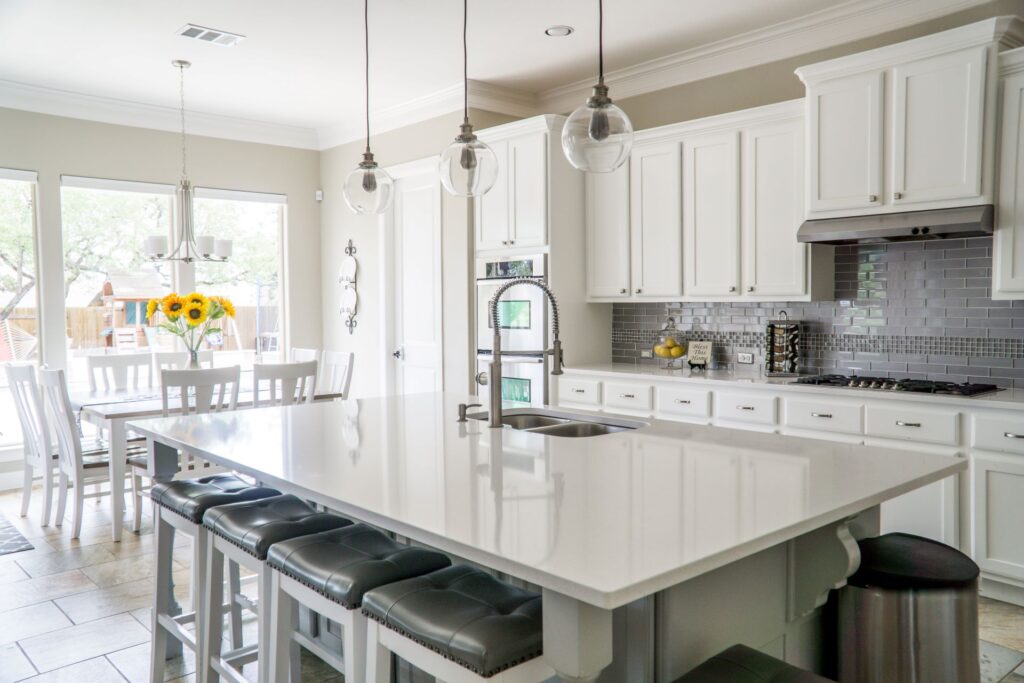Buying Kitchens in China: Pros and Cons
This article explores the advantages and disadvantages of purchasing kitchens in China. As with any purchase, finding a reliable supplier or factory is crucial. Based on my experience, I’ve worked with two factories: one that we will never use again and another that we trust and continue to do business with, selling kitchens and built-in wardrobes in the New Zealand market.
Pros of Buying Kitchens Made in China
-
Cost-Effective: Products manufactured in China often come with lower production costs, resulting in more affordable prices for consumers. The amount you save depends on whether you want the kitchens assembled in the factory or “flat packed” and assembled in your home country.
-
Wide Variety: China has a vast manufacturing industry, offering a wide range of kitchen designs, styles, and options. Whether you want a high-quality paint finish or a more affordable melamine finish, there are many options. The same applies to fittings, from high-end options like Blum to more budget-friendly alternatives.
-
Quick Production: Chinese manufacturers are known for their efficient production processes, allowing for quicker turnaround times. In my experience, it takes 25 to 50 days for the kitchens to be made, depending on how busy the factories are.
-
Innovation and Technology: China has made significant advancements in manufacturing technologies. Some Chinese kitchen brands incorporate the latest innovations in their products. All the kitchen factories we deal with use CNC cutting machines, which remove the human element from production and lead to a uniform product.
Cons of Buying Kitchens Made in China
-
Quality Concerns: There is a perception of lower quality in some Chinese-made products, which can vary between manufacturers. Thorough research is essential. First-hand experience with a factory is invaluable. We had a negative experience with one factory but found another that has proved very reliable.
-
Communication Challenges: Language barriers and different time zones can lead to communication difficulties, potentially impacting the ability to address issues or customize orders. Having a trusted agent in China can greatly help with communication.
-
Shipping and Import Costs: Importing products from China can involve additional shipping and import expenses, which could offset the initial cost savings. Buying a kitchen in China is more cost-effective if you can consolidate it with other building materials like doors, tiles, bathroom fittings, etc., to lower the overall transport cost.
-
Environmental and Labor Standards: Some consumers are concerned about the environmental and labor standards in Chinese manufacturing facilities. It’s essential to research and choose companies that adhere to ethical and sustainable practices.
-
Long Lead Times: While Chinese manufacturers can produce goods quickly, the shipping and import process may result in longer overall lead times compared to locally produced items.
Payment Methods
Factories or trading companies will charge either Ex-Works or FOB prices:
- Ex-Works: You pay all local charges and for transporting the goods to the nearest port.
- FOB: The factory or trading company covers these costs.
For more information on logistics and shipping, I have written a separate article.
Final Considerations
Before making a decision, it’s crucial to thoroughly research and potentially visit the manufacturer, read reviews, and consider factors like warranty, customer service, and overall product quality. You will also need to have an eye for detail with the kitchen design. The factory we use will make the kitchen exactly to the design plan that has been signed off, so it’s important to study it carefully to ensure every detail is correct.

